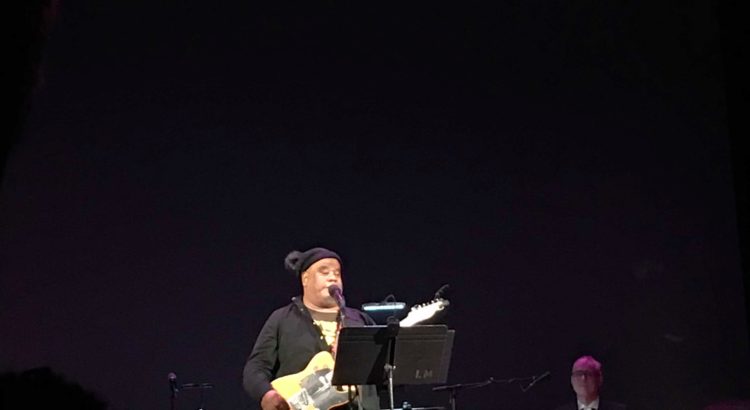Stew’s poignant prose accompanied by Heidi’s soulful melodies create songs that encourage and make you think all at the same time. It’s not until after many listens do you fully grasp all the references within the lyrics. Notes of a Native Song is an album meant to train its listeners to analyze every situation. Songs within the album are a clarion call for activism. Stew and The Negro Problem’s performance was an illustration of how songs can shine light on social injustice and inspire a generation to take action.
Stew, feeling under the weather, started by lowering our expectations, stating that the current performance could not nearly be as good as the previous night. However, halfway through the opening song, we knew that his disclaimer was not true. Stew and The Negro Problem kicked off the performance just as their studio album does with a song titled Baldwin Country. Baldwin Country gave the audience background information about James Baldwin. Stew used the song as an appetizer to sate the audience’s initial inquiries as to what the album is about and what kind of music they were about to hear for the ensuing hour.
Stew and The Negro Problem artfully lulled the audience during Istanbul. The song acted like a palate cleanser for the ears. Istanbul was followed by the thought-provoking lyrics of Amen Corner and Proof. “Jesus ain’t no match for jazz and these police.” “When the restlessness of Jesus meets the patience of Job.” “Power is so powerful it can’t afford to pay people to speak truth to it.” “Power looking ugly, Power looking mean, but never painting power so that Power’s ever seen.” These two songs have driving melodies and powerful lyrics.
Florida, Stew jested was the only political song on the album. A song in which the band plays a laid-back Californian beat while Stew compares Florida to other states in the Union. Stew suggests that no state is better than another; each state has pros and cons. But quickly follows up with “It doesn’t matter if the weather is great if I gotta wear a bulletproof vest.” The amusing comparisons and harsh criticism of Florida, made Florida my favorite song in the performance.
I was introduced to Stew last year when SMTD performed Passing Strange. The first act is a feast full of political statements and nuggets of truth not often heard aloud. It opened my eyes to musicals that have a motive other than to entertain.
Without force feeding the audience, Stew and The Negro Problem served up a well-balanced performance—one that left me full all the while leaving me to beg for more. The insightful songs and sounds of Stew and The Negro Problem inspired me, and I am thankful they returned to the University of Michigan to once again share their mighty message of a movement.


